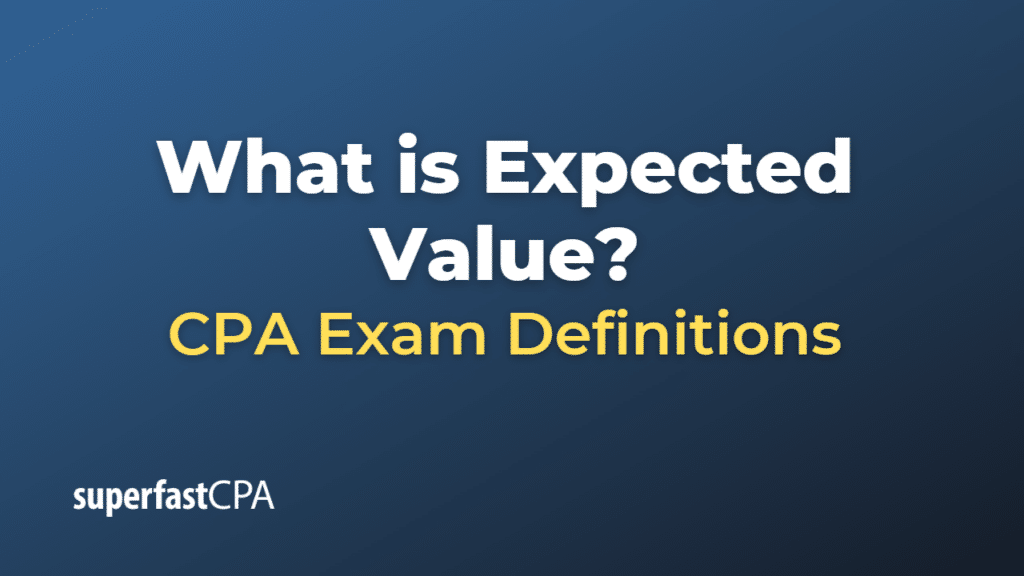Expected Value
Expected value, also known as expectation or mathematical expectation, is a fundamental concept in probability theory and statistics. It represents the average outcome of a random variable over a large number of experiments or trials.
In other words, it is a weighted average of all possible values that a random variable can take, with each value being weighted according to its probability of occurrence.
The expected value is calculated by multiplying each possible outcome by its respective probability and then summing these products.
Mathematically, the formula is:
\(EV = \sum (x_i \cdot P(x_i)) \)
Where:
- xi represents the value of each outcome.
- P(xi) represents the probability of each outcome.
It’s important to note that the expected value does not necessarily represent a value that the random variable is most likely to take on; rather, it reflects the central tendency or “average” outcome over the long run of experiments.
Expected value is widely used in various fields including statistics, economics, finance, insurance, and many others. For instance, in finance, the expected return on an investment is essentially the expected value of the investment’s rate of return.
Example of Expected Value
Let’s consider a simple example involving a dice roll.
If you roll a fair six-sided die, each of the six possible outcomes (1, 2, 3, 4, 5, 6) has an equal probability of 1/6.
We can calculate the expected value of a single dice roll as follows:
\(EV = \sum (x_i \cdot P(x_i)) \)
= (1 * 1/6) + (2 * 1/6) + (3 * 1/6) + (4 * 1/6) + (5 * 1/6) + (6 * 1/6)
= 1/6 + 2/6 + 3/6 + 4/6 + 5/6 + 6/6
= 3.5
So, the expected value of a roll of a fair six-sided die is 3.5. This does not mean that you can roll a 3.5 on a die – it’s not even one of the possible outcomes. But over a large number of rolls, the average result would be close to 3.5.
This is a simple example, but the principle of expected value applies to much more complex scenarios in various fields like finance, insurance, economics, and decision-making under uncertainty.













